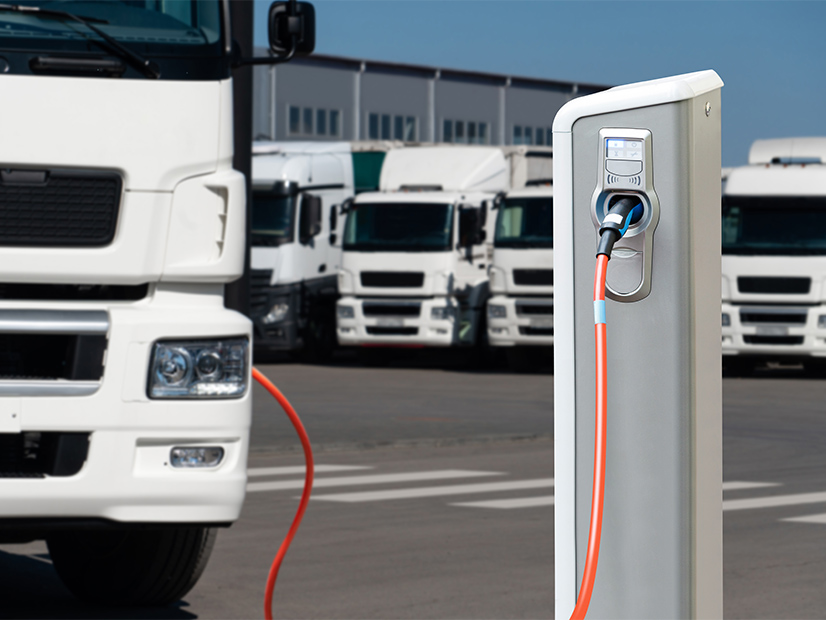
California regulators have withdrawn their request for federal approval of a statewide ban on diesel truck sales after 2035, saying they’ve run out of time before President-elect Donald Trump returns to the White House.
In a letter to U.S. EPA dated Jan. 13, Steven Cliff, executive officer of the California Air Resources Board, said CARB was withdrawing its request for a waiver and authorization under the Clean Air Act for its Advanced Clean Fleets regulation.
In similar letters on the same day, Cliff withdrew waiver requests for CARB’s In-Use Locomotive standard and portions of two other regulations, the Commercial Harbor Craft and Ocean-Going Vessels At-Berth regulation and the Transport Refrigeration Unit Engine standards.
Withdrawal of the waiver requests comes just days before President-elect Donald Trump’s inauguration Jan. 20.
“While we are disappointed that U.S. EPA was unable to act on all the requests in time, the withdrawal is an important step given the uncertainty presented by the incoming administration that previously attacked California’s programs to protect public health and the climate and has said will continue to oppose those programs,” CARB Chair Liane Randolph said in a statement provided to NetZero Insider.
Under the federal Clean Air Act, California may set its own vehicle emission standards as long as they’re as stringent in aggregate as federal standards. EPA must issue a waiver for the state to enforce the regulations. Other states may then choose to adopt California’s rules rather than sticking with federal standards.
In November, Gov. Gavin Newsom traveled to D.C. to push for federal approval of pending Clean Air Act waivers, ahead of the incoming Trump administration.
His efforts were partly successful. On Dec. 18, EPA approved a waiver for California’s Advanced Clean Cars II rules, which require manufacturers to provide an increasing percentage of zero-emission cars for sale in the state each year. By 2035, all new cars sold in the state must be zero-emission or plug-in hybrid. (See EPA Approves Waiver for California’s Advanced Clean Cars II Rules.)
Eleven other states, along with D.C., have adopted ACC II.
CARB’s emission standards for small off-road engines, such as those used in landscaping equipment, received an EPA waiver Dec. 19. And CARB received waivers this month for portions of its Commercial Harbor Craft and Transport Refrigeration Unit Engine regulations.
But time ran out on a waiver for CARB’s in-use locomotive standard, which was considered a groundbreaking measure to replace the worst-polluting diesel locomotives with cleaner engines by 2030 and to transition to 100% zero-emission locomotives over the next three decades. (See CARB Approves Clean Locomotives Regulation.)
The CARB board approved the regulation in April 2023 and a waiver request was submitted to the EPA in November 2023.
Assessing Next Steps
The Advanced Clean Fleets (ACF) regulation also did not receive an EPA waiver.
The regulation, which the CARB board approved in April 2023, requires truck fleet operators to start transitioning to zero-emission vehicles beginning in January 2024. The regulation applies to three categories of fleets: drayage fleets, state and local government fleets, and federal and high-priority fleets. Fleets are considered high priority if they have 50 or more vehicles or more than $50 million in annual revenue. The speed of the zero-emission transition depends on the type of fleet. (See CARB Adopts Clean Fleets Rule Despite Broad Skepticism.)
In addition, ACF requires all new medium- and heavy-duty trucks sold in the state to be zero-emission starting in 2036. But without an EPA waiver, CARB cannot enforce the regulation.
Randolph said in her statement that CARB is looking at ways to continue improving the state’s air quality.
“The waivers and authorizations recently approved, along with other existing programs, will advance essential emissions reductions in key sectors as we assess next steps,” she said.
Among regulations still in place is CARB’s Advanced Clean Trucks regulation, which requires truck manufacturers to sell an increasing percentage of zero-emission vehicles each year starting with model year 2024. The percentage varies based on the weight class of the truck. The ZEV sales requirements top out at 55% for class 2b-3; 75% for class 4-8; and 40% for class 7-8 tractors in 2035 and beyond.
The CARB board adopted the ACT regulation in 2021 and received an EPA waiver for the rules. Ten states in addition to California have adopted ACT.
In October, the CARB board approved Advanced Clean Trucks amendments intended to make it easier for truck manufacturers to comply with the regulation. (See Calif. Revises Clean Truck Rules to Ease Compliance.)
The amendments also clarified that new medium- and heavy-duty trucks sold in 2036 and later must be zero-emission, consistent with the Advanced Clean Fleets regulation.
It was unclear whether the ACT amendments need an EPA waiver to take effect. CARB didn’t respond to questions about the fate of the ACT amendments.
Advocates had urged EPA to approve California’s waiver requests before the end of the Biden administration.
Without approval of the waivers before Jan. 20, “the incoming Trump administration could either deny the waivers or refuse to act on them,” the Coalition for Clean Air said in a Jan. 2 release.
If the waivers were issued, the Coalition said, the Trump administration could try to revoke them, “but the law offers protections against that, and California could prevail.”



